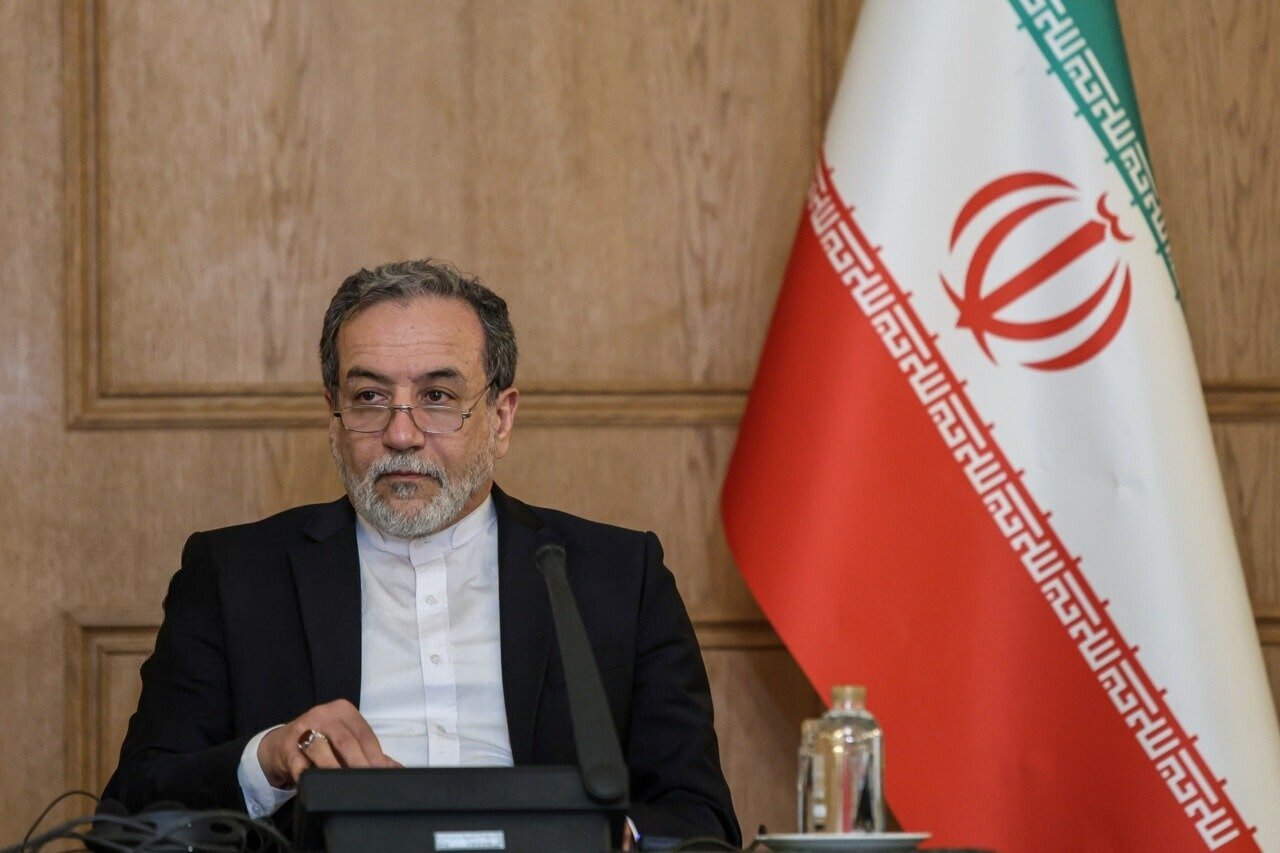Araghchi says ‘no negotiations under pressure’

TEHRAN – Iran’s Foreign Minister Abbas Araghchi has reiterated the country's position that talks with the U.S. are not of interest under the current circumstances, while no signs yet indicate that Washington may decide to drop its inflammatory and hardline approach toward Tehran.
“Our foreign policy is clear: we will never negotiate with anyone under pressure or threats,” Araghchi said during a joint press conference with his Sudani counterpart, Ali Yusuf Ahmed, in Tehran. “This is a fundamental principle upheld by every independent nation,” Iran’s top diplomat noted.
U.S. President Donald Trump signed a National Security Presidential Memorandum (NSPM) in his first Iran-related actions since taking office, which reinstated the "maximum pressure" campaign against Tehran and rolled out plans to further straddle the country’s economy.
While it lacked explicit orders, the directive is expected to encourage more sanctions on shipping, insurance, and port sectors. The U.S. might also try to slash Iran’s oil revenue by threatening its customers.
Furthermore, reports suggest sanctions waivers related to Iran’s relations with Iraq, India, and some Persian Gulf states will be canceled in Trump’s second attempt with the infamous “maximum pressure campaign”.
The president introduced the campaign during his first term in 2018, after leaving the 2015 Iran nuclear deal. His successor and now predecessor Joe Biden maintained the anti-Iran policies.
Since signing the memorandum and making a few provocative remarks about the possibility of “bombing the hell out of Iran”, Trump has said that he wants a new nuclear deal with Iran and is also looking to make agreements on some “non-nuclear” issues.
During his press conference on Monday, Araghchi emphasized that what holds true value is adherence to commitments, not “beautiful statements or interviews.” He slammed the U.S. for its “maximum pressure” strategy against Iran, pointing to U.S. President Donald Trump’s February 4 memo.
“The document speaks for itself,” he stated, adding that such tactics have historically failed to sway Iran. “Our nation has always defended its dignity, and imposed resolutions against us have never been effective.”
He further stressed that mutual respect would guide Iran’s responses, saying, “If the Iranian people are addressed with respect and honor, they will respond in kind.”
Shortly after the U.S. President issued the directive, the Leader of the Islamic Revolution, Ayatollah Seyed Ali Khamenei, dismissed the idea of negotiating with Washington. He emphasized that such discussions would be "neither prudent, wise, nor honorable" in light of Trump’s antagonistic stance and Iran’s previous negative experiences.
The leader underscored Washington’s history of failing to uphold agreements, particularly pointing to the U.S. withdrawal from the Joint Comprehensive Plan of Action (JCPOA) in 2018 as a key reason for his perspective on negotiations with the U.S.
The JCPOA, also known as the Iran nuclear deal, was an agreement reached between Iran and world powers, including the United States. That aimed to limit Tehran’s nuclear program in exchange for the termination of sanctions. The deal is now defunct as the so-called maximum pressure campaign brought back all the embargoes and also added new ones.
‘IAEA must avoid political pressures’
Elsewhere in his latest remarks, Araghchi revealed that Iran has engaged in ongoing consultations with the UN nuclear watchdog. The International Atomic Energy Agency (IAEA) Board of Governors previously requested Director General Rafael Grossi to submit a comprehensive report on Iran’s nuclear program, a process Araghchi described as “complex.”
During a recent phone call with Grossi, Araghchi insisted that the report should not reopen closed cases, a position he said Iran continues to deliberate. “We welcome the Director General’s decision not to include this report in the upcoming Board of Governors meeting,” he noted.
The minister urged the IAEA to remain a “technical and specialized body” free from political interference. “Reports must be based on professional principles and not deviate from their technical path,” he asserted, calling for objectivity in the agency’s assessments.
‘Iran backs Sudan’s government against rebels’
Araghchi also highlighted strengthened ties with Sudan, announcing the signing of two memoranda of understanding. The first abolishes visa requirements for diplomatic and service passport holders, while the second establishes a bilateral political consultation committee. A joint economic cooperation commission is also slated for the coming months.
“One key area agreed upon for the commission is the participation of Iranian companies in Sudan’s reconstruction efforts,” he said.
He affirmed Iran’s support for Sudan’s government and military in combating rebel groups, expressing solidarity with civilians affected by the conflict. “We stand with the defenseless people harmed by these attacks,” he said, pledging continued diplomatic and economic collaboration with Khartoum.
Leave a Comment